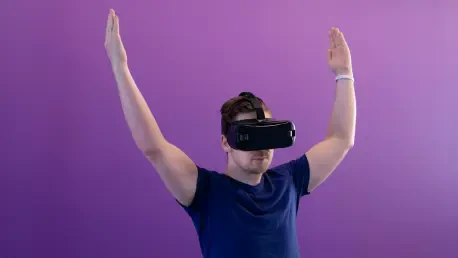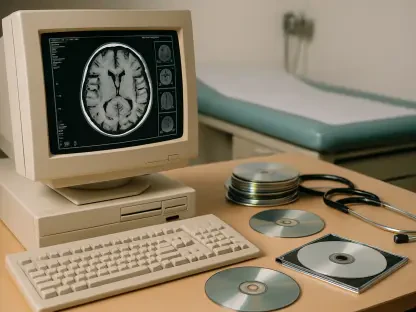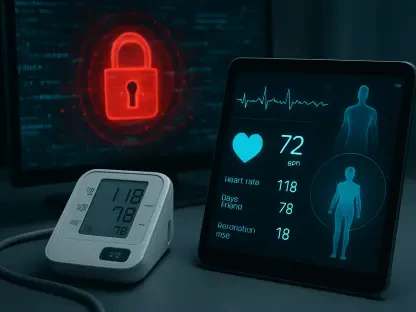Imagine a world where cutting-edge rehabilitation therapy can be delivered directly to patients, regardless of their location or the technological limitations of their healthcare facility. This vision is becoming a reality through the innovative efforts of XRHealth, a Boston-based company at the forefront of immersive therapeutics. With a focus on extended reality (XR) technologies, XRHealth is transforming the landscape of virtual reality (VR) rehabilitation by breaking down barriers to access and personalizing care for diverse patient needs. Their latest advancements, including a mobile VR rehabilitation station, showcase a commitment to enhancing physical, occupational, and mental health therapies. By integrating artificial intelligence (AI) and strategic partnerships, the company is not only addressing immediate logistical challenges but also setting a new standard for efficiency and scalability in healthcare delivery. This exploration delves into how XRHealth’s pioneering solutions are reshaping therapeutic care across multiple domains.
Breaking Barriers with Mobile VR Solutions
XRHealth’s introduction of the XR CareCart marks a significant leap forward in making advanced VR therapy accessible to a wide range of healthcare settings. Designed as a mobile, plug-and-play system, this innovative rehabilitation station can be seamlessly deployed in clinics, hospitals, senior living facilities, and even mobile programs for veterans’ care. The XR CareCart is equipped with dual VR headsets, a preloaded laptop featuring XRHealth’s therapeutic platform, a patient-facing tablet, and monitor arms for clinician oversight, all housed on a medical-grade mobile cart. What sets this system apart is its ability to operate without complex IT setups or Wi-Fi, thanks to an integrated SIM-based router. This feature ensures that high-quality rehabilitation services can reach patients in environments with limited infrastructure, addressing a critical gap in healthcare delivery. The focus on mobility and ease of use reflects a broader mission to democratize access to immersive therapeutics for conditions ranging from mobility issues to chronic pain.
Beyond its logistical advantages, the XR CareCart offers a comprehensive suite of therapeutic applications tailored to diverse patient needs. It supports physical therapy by targeting mobility, balance, and range of motion while also providing pain relief solutions. In occupational therapy, the system aids in refining motor skills and supporting daily functional activities. Additionally, mental health benefits are a key component, with programs designed for anxiety management, stress reduction, cognitive training, and relaxation techniques. This multifaceted approach ensures that patients receive holistic care, addressing both body and mind through a single, portable platform. By eliminating the need for extensive setup or technical expertise, XRHealth empowers healthcare providers to deliver immediate, effective interventions. Such innovation not only enhances patient outcomes but also highlights the potential of VR to transform traditional rehabilitation models into more flexible and inclusive systems.
Enhancing Therapy through AI and Platform Innovations
Another dimension of XRHealth’s impact lies in its integration of AI and advanced platforms to streamline and personalize therapeutic care. The recent launch of XRHealth 2.0 represents a significant upgrade in how clinicians deliver services and monitor patient progress. This unified platform features a dashboard that simplifies onboarding, accelerates treatment assignments, and provides clear visibility into patient advancements across various therapeutic areas. By reducing administrative burdens, the system allows clinicians to focus on direct patient interaction, thereby increasing their capacity to serve more individuals effectively. Furthermore, the incorporation of AI-driven tools, such as a customizable clinician assistant avatar, educates patients and alleviates routine tasks for healthcare providers. These advancements underscore a commitment to leveraging technology for greater efficiency and improved care quality.
Complementing these platform enhancements are strategic integrations that enrich XRHealth’s offerings with real-time, data-driven insights. A notable partnership with Kemtai has introduced AI-enabled motion analysis into physical therapy programs, providing patients with immediate feedback and performance scores during sessions for orthopedic, neurological, or post-surgical recovery. This technology empowers patients to actively participate in their rehabilitation by understanding their progress in real time, fostering motivation and adherence to treatment plans. Additionally, the acquisition of RealizedCare, a digital therapeutics company, has bolstered XRHealth’s capabilities in chronic pain and behavioral health management. By integrating scientifically validated methods and triage tools, the company can offer highly personalized care plans that adapt to individual needs. These combined efforts illustrate a forward-thinking approach to therapy, where AI and collaborative innovations create a seamless, supportive ecosystem for both patients and clinicians.
Pioneering a Future of Personalized Rehabilitation
Looking at the broader implications of XRHealth’s work, it’s evident that personalization stands as a cornerstone of their strategy to redefine rehabilitation. The development of an AI-powered XR platform allows for the creation of custom 360-degree therapeutic environments and dynamic avatars, tailoring each patient’s experience to their specific conditions and preferences. Whether it’s simulating calming landscapes for stress relief or designing targeted exercises for physical recovery, this level of customization ensures that therapy is not only effective but also engaging. Such individualized interventions are particularly impactful in mental health care, where patient comfort and emotional connection to treatment can significantly influence outcomes. XRHealth’s emphasis on bespoke solutions signals a shift in healthcare toward more patient-centered models that prioritize unique needs over one-size-fits-all approaches.
Equally important is how these personalized tools align with industry trends toward scalability and clinician support, ensuring sustainable growth in therapeutic delivery. By reducing workload through AI assistants and streamlined platforms, XRHealth enables healthcare professionals to manage larger patient volumes without compromising care quality. The ability to adapt environments and therapy plans dynamically also means that treatments can evolve with patient progress, maintaining relevance and effectiveness over time. This adaptability is critical in addressing complex conditions like chronic pain or long-term rehabilitation, where static methods often fall short. As XRHealth continues to refine its technologies and expand its reach through partnerships and acquisitions, the focus remains on building a comprehensive system that supports diverse therapeutic needs. The result is a transformative framework that not only meets current demands but also anticipates future challenges in healthcare delivery.
Reflecting on Transformative Strides in Healthcare
Reflecting on XRHealth’s journey, the strides made in immersive therapeutics paint a picture of innovation and dedication to bettering patient care. The deployment of the XR CareCart tackles logistical hurdles head-on, ensuring that even the most under-resourced facilities can offer state-of-the-art VR therapy. Meanwhile, platforms like XRHealth 2.0 and integrations with AI technologies redefine efficiency, allowing clinicians to focus on meaningful patient interactions. Partnerships and acquisitions further enrich the therapeutic landscape, blending complementary expertise to address a spectrum of health challenges. Moving forward, stakeholders in healthcare should consider how such mobile and personalized solutions can be scaled to reach underserved populations, ensuring equitable access to advanced care. Exploring collaborations with educational institutions to train clinicians on XR tools could also amplify impact, paving the way for a future where technology and human care converge seamlessly to heal and empower.









